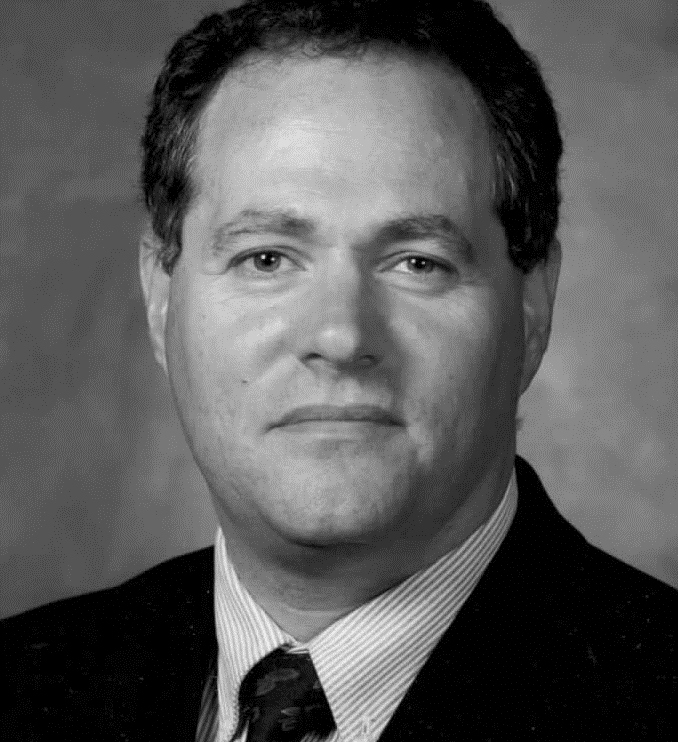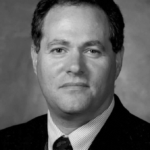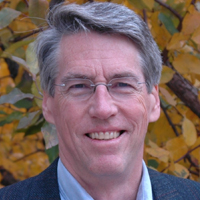
William Watson: How did you first hear about the events of Sept. 11?

Ed Morgan: I first heard about it in the car radio on my way down to work that morning. But there were only initial reports when I pulled into the parking lot, so I didn’t really take it seriously yet. And then I started to do some work. About an hour later, my wife called me to say, “Can you believe what’s happening?” And I hadn’t heard anything since I had turned off the car so I then tried the radio in the office and started listening. I was aghast. They set up a TV downstairs in the law school building here and I went down to watch it. And then, about an hour later, there was a bomb scare in our building. Which only added to the drama of the day. So they evacuated us from our building. It happened to be a bright sunny day, so we were all outside in the parking lot when the Fire Department combed through the place.
William Watson: It seems to have been a beautiful day everywhere.
Ed Morgan: Yes, isn’t that ironic. In some ways you know, stress brings people together, and the whole Faculty was outside milling in the parking lot. It was a surprisingly collegial atmosphere.
William Watson: When did you find yourself starting to do professional analysis? When did you start thinking like a lawyer about this thing?
Ed Morgan: My field is international law. In particular, I teach international criminal law and I’m writing on terrorism. So I would say it didn’t take much more than a minute or two before I started thinking about it in professional terms. Two weeks before Sept. 11, I came back from Europe where I was teaching a course on international law and terrorism in Helsinki. And so I’d been thinking about the topic a lot, at least in general terms.
William Watson: Does international law as it’s practised today have a handle on terrorism?
Ed Morgan: I would say not. I’m not sure international law has a handle on most areas of international conflict, actually. It purports to be the normative umbrella under which international politics falls, but the more you study it, the more you realize that politics drives the law, the law doesn’t really restrain politics. International law has an especially hard time with armed conflicts, and terrorism has been a particularly acute problem. I tend to be a bit of a skeptic on international law’s ability to handle these things at all—in any way other than just giving us one more rhetorical weapon to throw at each other.
William Watson: Are terrorists treated differently than other criminals? They’re engaged in acts of murder and extortion, usually. Are there laws above and beyond the national laws on these things?
Ed Morgan: Well, there is a whole network of treaties. So there is supposed to be more international cooperation on terrorism than in “crime fighting.” But since no one has ever been able to satisfactorily define the term, it’s hard to know what is a terrorist act and what isn’t. We know that it’s politicized violence. But that cuts it a number of different ways. On one hand, states signing onto all these treaties are under an obligation to cooperate in fighting terrorism. On the other hand, most extradition treaties exempt politically defined crimes from the obligation to extradite criminals. So we have a hard time with terrorism. It hasn’t fit neatly into most categories.
William Watson: Is the problem that there is good terrorism and bad terrorism? If you are fighting a legitimate war for national liberation, someone who sacrifices himself for the cause is not somebody we would feel about as we feel about the people who brought down the World Trade Center. Or is there a distinction to be drawn concerning the nature of the crime, that it’s a crime committed against civilians, that it’s against the innocent?
Ed Morgan: Well, some people say that it’s against civilians. Other people say that it’s against the stability of the current political regime. Canadian immigration law says that we will not admit a person who is or was a member of an organization that is or was a terrorist organization. But it doesn’t go on to define “terrorist organization.” If you went to the FBI’s website today, you would see a list of terrorist organizations that still includes the African National Congress. On that theory, of course, Nelson Mandela could never have visited this country, because he was a member of the ANC. We do have this phenomenon of terrorists sometimes being tomorrow’s statesmen. So, that’s a problem. We also have the problem of terrorists who, in some quarters of the world are considered to be national liberation heroes, even though in the rest of the world they are considered to be criminals. There aren’t many people who are in the bin Laden category where everybody seems to agree that he, at least, can be identified as a terrorist.
William Watson: Although even he has support from a number of countries.
Ed Morgan: If we watch the demonstrations on the street in Pakistan, for example, he seems to have enormous popular support: There aren’t actually many governments who have come out and endorsed him. But that could be here today, gone tomorrow. Also, not many governments endorse him because not many governments want to feel the wrath of American retaliation.
In sum, terrorism has not been an easy thing to define—although as a U.S. Supreme Court judge once said about obscenity, we do tend to know it when we see it. And we definitely saw it on Sept. 11.
William Watson: You said that politics essentially moves international events and international law sometimes simply provides rhetorical cover. Do you get the sense that the current U.S. military action is a case in point? The U.S. clearly has taken steps to demonstrate that what it’s doing is consistent with international law, but do you feel that it would have done what it wanted to anyway?
Ed Morgan: I think the Americans are trying. They’re showing that they know how to play the international game. But I wouldn’t characterize it as much more than that. Either you think their response to this attack in the form of the current military campaign is right or it’s wrong. Whether or not they get one more or one less person in a coalition, whether or not the Security Council provides exactly the right verbal formula is to my mind just a rhetorical game. It’s just one more level of political posturing. It doesn’t really give us a normative hold on the issue.
In general, that’s the problem with the international system that we have so far. We have this idea that the Security Council defines what is or is not a justified use of force. But if you look at the history of the Security Council and world affairs, you won’t find a particularly satisfying record. The Security Council doesn’t seem to have any normative way of distinguishing illegitimate interventions from legitimate interventions. Lots of armed interventions in another country’s affairs are interventions disguised as invitations. They legitimized the Soviet Union’s invasion of Hungary in 1956, of Czechoslovakia in 1969, and of Afghanistan in 1979. Lots of countries have followed that lead and now Zimbabwe is intervening in Congo, supposedly at the invitation of the Congo government, although they seem to have their own strategic ideas in mind. These things get done after invitations and in the name of self-defense and then the Security Council is supposed to opine on them. Silence is approval. If the Security Council doesn’t condemn it, then it’s fair game. But they don’t have a great record.
That’s on one side. There are other excuses for intervention. The Americans have a favorite excuse of intervening in foreign military campaigns to protect nationals. They did that in the Dominican Republic in 1965. They did it Grenada in 1983. Turkey used that excuse supposedly to protect the Turkish Cypriots in 1974. As I said, the Security Council record is completely ambiguous in all these things.
William Watson: Do you see changes in this international system following on Sept. 11? Would you favor a system where the Security Council had more weight, or more authority to back up its decisions?
Ed Morgan: No. Because I don’t see any way to keep raw politics from playing such an important role. If you’re going to have political actors throwing their weight around, transparency is best, I think. We should not try to disguise politics and pretend it’s something else. By referring matters to the United Nations, that’s sometimes what we’re doing. We’re making things seem normatively legitimate when they’re really just crassly political.
So I have a problem with referring more things to the United Nations. The UN has two shortcomings. First, the superpowers get enormous weight where it counts. They are great powers, almost by definition, because of their veto power in the Security Council. But, second, in the general voting patterns, we have General Assembly majoritarianism, in which lots of smaller states get to vote in things that are ridiculous. There is no principled way of controlling state behavior in the United Nations. There are only various ways of voting.
William Watson: Weighting votes by population and so on?
Ed Morgan: Right. Or by committee membership. If you look through the UN Charter, there are virtually no substantive provisions. It’s all structural. It tells you which committees there are, who can be a member of what committee, how you get on to committees, what the rotating memberships are, who gets to vote where, and so on. It’s all structural and procedural. There is virtually nothing substantive in it.
There is Article 2.4, which says you can’t use force as an instrument of state power. And there is Article 51 that says, in effect, “we preserve the inherent right of self-defense.” But to adjudicate a use of force or a use of self-defense, you have to come back to the Security Council, which just replicates the same problems of world politics.
William Watson: A current Council member is one of the commonly listed terrorist countries.
Ed Morgan: Yes. That’s why I can’t get too excited when people say the United States hasn’t quite used all the Security Council mechanisms. I always want to ask them: “Well, whose vote is it that you wanted to hear from?” You can easily get a rogue state, as we have now, on the Security Council.
William Watson: On the question of civil liberties, how, if at all, do you feel our liberties are going to be reduced as a result of this event?
Ed Morgan: I think civil liberties will be most tested in the immigration process. Things can always change. If there were another serious terrorist attack next week in North America, and then another serious one the week after that, if there were a series of these things, you could see dramatically heightened concerns from law enforcement agencies. But in the climate we have now, I would say that the courts would still be very protective of civil liberties in domestic criminal investigations. The Toronto police spokesman has said that they are starting to look into various organizations and individuals that they’re concerned about here in Toronto. But I don’t think the courts will allow profiling of that nature—targeting Arabi organizations or Arab-Canadians or immigrant groups. I don’t think the courts will allow that to be any reason for actually interfering with civil liberties such as detaining people to question them, or wire-tapping, or searches and seizures. I’m pretty sure the courts will hold firm on the civil liberties line.
William Watson: For people already in Canada?
Ed Morgan: For people already in Canada. But at points of entry—you can never be sure—but if I had to predict, I’d predict that the courts will be much more deferential to the desires of law enforcement authorities. That’s been our tradition up to now, and it’s also the same in the United States. They’ve drawn that line as well.
I think the real test will be how we go about enforcing immigration laws vis-à-vis people who are in the country already, be they people on visas or off-side their visa status. The government has said we will do more rigorous enforcement. There will be a lot of questions as to how we do that more rigorous enforcement. Will we do it on nationality lines? Or on ethnic lines? Or will we rigorously enforce it across the board? That will be a battleground for some discrimination concerns.
William Watson: Do you think profiling would be allowed?
Ed Morgan: It’s conceivable. I think the courts will be concerned about it, but if security concerns are high enough, it’s conceivable. We have to be careful, because that can be very corrosive of Canadian communities. We do have a multicultural society. This has been hotly argued, in the American literature, by Latino-American advocates. They have said that the rigorous enforcement against immigrants from Spanish-speaking countries has been corrosive of Latino life within the United States. They are concerned about the rights of the immigrants themselves, but they say Latino-Americans who are U.S. citizens have become a perpetual underclass partly because of this constant profiling of Latinos as illegals.
William Watson: How have the U.S. courts responded to that?
Ed Morgan: They have curtailed the INS (the Immigration and Naturalization Service) from internal sweeps. Until the late 1970s the INS could go into towns and essentially require somebody to establish their status in the U.S. if they “looked Mexican”—which is racial profiling at its starkest. But now the courts have said that all they can do is use that kind of rule at fixed spots on highways. So if they have a spot check set up on a highway going north from Texas or Southern California because they’re worried about alien-smuggling, they can use that kind of racial criterion. They can also use it at the border or at airports and other points of entry. But they cannot do it on mobile patrols. They can’t go into San Diego, California, and make an entire neighborhood full of people prove their status in the US.
William Watson: I’ve heard the argument that we may get a of two-tier system at the border, that some people who want to get through quickly can sign up for rigorous background checks and so on, and in effect surrender their civil liberties, and they’ll get one standard of treatment. And another group that doesn’t cross borders frequently or for whatever reason doesn’t want to go along with this infringement on their civil liberties will stand in line and be subject to careful checks every time they go through. How do you think the courts would react to that type of system?
Ed Morgan: I haven’t really thought about that but off the top of my head it doesn’t strike me as particularly offensive. Because the way you describe it it’s across the board. It doesn’t select out certain racial or ethnic groups. I don’t see it as being a problem. Of course, a lot of civil libertarians are concerned beyond the profiling question. They’re simply concerned with how much information government has about people.
William Watson: One poll has said 80 per cent of Canadians are willing to have a national ID card of some kind or another. What’s your reaction to that?
Ed Morgan: Listen, if there are bona fide law enforcement concerns about violence in Canada, my personal reaction is that I would also be willing to have an ID card. And I think the courts would uphold that. That does seem like a reasonable limit of any privacy right you might otherwise have, provided there is a bona fide concern about violence. The problem is that until now Canadians generally have not taken national security concerns very seriously.
William Watson: There has been no benefit to offset the cost.
Ed Morgan: Before Sept. 11, I was in that boat. If you had asked me should we augment CSIS’s power because of national security concerns, I would have had a picture in my mind of wire-tapping the three remaining members of the Marxist-Leninist Society of UBC. But now the world seems to have changed. We now realize that law enforcement agencies are not just chasing phantoms, they may be chasing real threats of violence.
William Watson: If you had this card, could a policeman just come up to you and say “do you have your card?”—the sort of thing that before Sept. 11 just about everyone who thinks about these things would have considered to be illegal search?
Ed Morgan: You might have the card, but it would be another step for arbitrary stops to ask you to produce it. We may have to get to another level of security awareness before that happens. At a first stage, the cards might be there for when you cross the border or go into a public building. But being stopped on the street? That does start to scare most people. The Canadian courts certainly would have to be convinced there really was a heightened security concern—beyond what we seem to have today—before they would allow a policeman to stop you on the street and just start asking questions without any cause or suspicion whatsoever.
William Watson: Thanks very much for doing this.
Photo: arindambanerjee / Shutterstock










